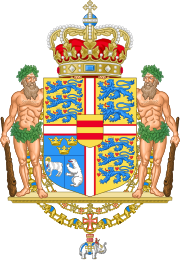From Wikipedia, the free encyclopedia
1926 Danish Folketing election Folketing
This lists parties that won seats. See the complete results below.
Folketing elections were held in Denmark on 2 December 1926,[ 1] Faroe Islands where they were held on 20 December. The Social Democratic Party remained the largest in the Folketing, with 53 of the 149 seats. Voter turnout was 77.0% in Denmark proper and 40.2% in the Faroes.[ 2]
Results
Party Votes % Seats +/– Denmark Social Democratic Party 497,106 37.16 53 –2 Venstre 378,137 28.27 46 +2 Conservative People's Party 275,793 20.62 30 +2 Danish Social Liberal Party 150,931 11.28 16 –4 Justice Party of Denmark 17,463 1.31 2 +2 Schleswig Party 10,422 0.78 1 0 Communist Party of Denmark 5,678 0.42 0 0 Independence Party 2,117 0.16 0 New Total 1,337,647 100.00 148 0 Valid votes 1,337,647 99.73 Invalid/blank votes 3,579 0.27 Total votes 1,341,226 100.00 Registered voters/turnout 1,742,604 76.97 Faroe Islands Union Party –Venstre 2,600 63.05 1 0 Social Democratic Party 1,019 24.71 0 New Independents 505 12.25 0 New Total 4,124 100.00 1 0 Valid votes 4,124 99.25 Invalid/blank votes 31 0.75 Total votes 4,155 100.00 Registered voters/turnout 10,325 40.24 Source: Nohlen & Stöver
References



